Every driver, at some point, has probably wondered: What would I do if my brakes suddenly stopped working? While brake failure is rare, it can happen to anyone, and knowing how to react in a high-speed emergency can mean the difference between life and disaster.
The key is to stay calm and follow a series of steps to bring your vehicle to a safe stop. Here’s exactly what you should do if your brakes fail, plus how to prevent this terrifying situation in the first place.
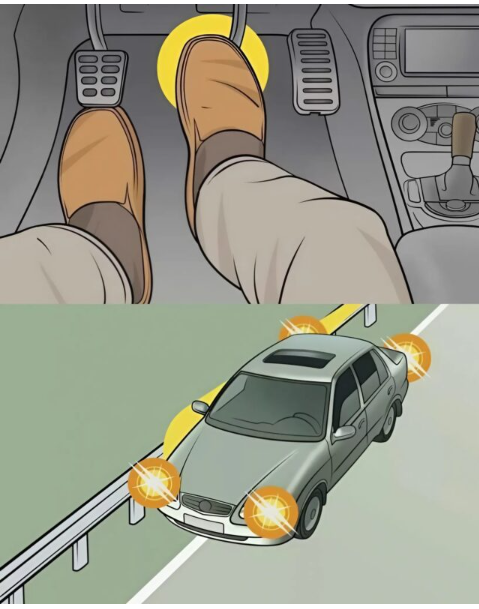
Recognizing the Problem: The First Signs of Brake Failure
Brake failure doesn’t always happen suddenly. Sometimes, there are warning signs that indicate a problem before it becomes critical. Recognizing these signs early can give you time to take action before you find yourself in an emergency.
Some common signs of failing brakes include:
- A soft or spongy brake pedal – If the pedal feels unusually soft, it could indicate air in the brake lines or a fluid leak.
- Grinding or squealing noises – Worn-out brake pads can cause a grinding sound when pressing the pedal.
- A burning smell after braking – This can indicate overheated brakes, which could lead to brake failure.
- The brake warning light on your dashboard – Ignoring this warning can lead to a complete brake failure.
If you experience any of these issues, get your brakes checked immediately. Prevention is always better than reaction.
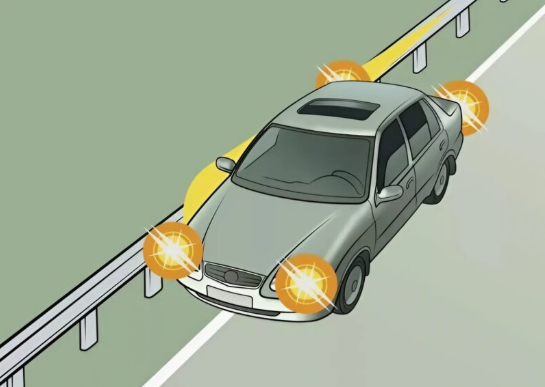
What to Do If Your Brakes Fail While Driving
If you press the brake pedal and nothing happens, panic is your worst enemy. Here’s what you need to do instead:
1. Don’t Panic—Stay in Control
Your instinct might tell you to slam the brake pedal repeatedly or turn the wheel suddenly, but sudden movements can make things worse. Instead, take a deep breath and focus on controlling the vehicle.
2. Try Pumping the Brakes
If your car has an older braking system without ABS, pumping the brakes quickly can help regain pressure. If there’s a temporary failure in hydraulic pressure, this technique might allow you to slow down.
For vehicles with ABS, however, this method may not work—move on to the next step immediately.
Video: Be sure to step on the brakes correctly when braking suddenly! #driving #car #tips #manual #carsoft
3. Engage the Emergency Brake (But Gently!)
Your parking brake (also called the emergency brake or handbrake) can help slow the car down, but you must use it gradually.
- Pulling the handbrake too hard could lock the rear wheels, causing the car to skid uncontrollably.
- Instead, apply steady, controlled pressure to slow down smoothly.
4. Downshift to Use Engine Braking
One of the best ways to slow your car down without brakes is by using the engine itself to reduce speed.
- In a manual transmission: Shift down one gear at a time (from 5th to 4th, then 3rd, then 2nd, etc.).
- In an automatic transmission: Switch to “L” (low gear) or “2” to allow engine resistance to slow the vehicle.
This technique, known as engine braking, can significantly reduce speed and give you better control over your car.
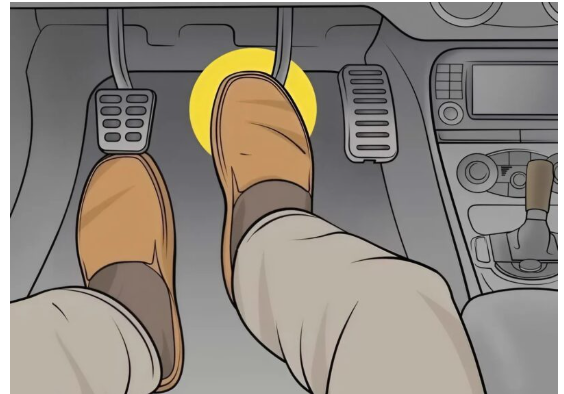
5. Look for an Escape Route
Your next priority is finding a safe place to stop. Look for:
- An emergency lane or shoulder on a highway.
- A grassy or sandy area that can create resistance and slow the vehicle.
- A gentle uphill road that will naturally slow you down.
If you’re in heavy traffic, turn on your hazard lights, honk your horn, and flash your headlights to alert other drivers that something is wrong.
6. Use Natural Obstacles as a Last Resort
If your speed is dangerously high and you have no other options, you may need to use friction to stop. Running into bushes, guardrails, or small curbs at a low angle can help bring the car to a halt while reducing impact damage.
This should only be used as a last resort if you can’t stop any other way.
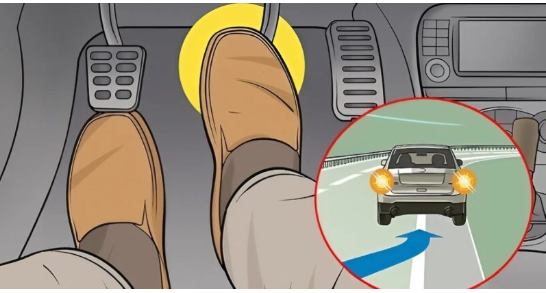
Why Do Brakes Fail? The Most Common Causes
Understanding what causes brake failure can help you prevent it. Here are the most common reasons brakes stop working:
- Brake Fluid Leak – The hydraulic system relies on brake fluid to function. If there’s a leak, the brakes won’t have enough pressure to stop the car.
- Worn-Out Brake Pads or Discs – Over time, brake pads and discs wear down, reducing their ability to create friction and slow the car.
- Overheated Brakes (Brake Fade) – Continuous braking, especially on long descents, can cause brake fade, making the brakes unresponsive.
- ABS Malfunction – A failure in the anti-lock braking system (ABS) can prevent the brakes from functioning correctly.
- Master Cylinder Failure – The master cylinder is responsible for generating hydraulic pressure. If it fails, the brakes will stop responding.
Video: If Your Car Brakes Fail… 😱
Preventing Brake Failure: Maintenance Tips Every Driver Should Follow
To avoid brake failure, regular maintenance is critical. Here’s how to keep your brakes in top condition:
1. Check Your Brake Fluid Regularly
Brake fluid should be clear or slightly yellowish. If it appears dark or dirty, it’s time for a replacement. Most manufacturers recommend changing it every 2–3 years.
2. Inspect Brake Pads and Rotors
Brake pads wear down over time. A good rule of thumb: Replace them if they are less than 3mm thick.
3. Avoid Overheating Your Brakes
- When driving downhill, use engine braking instead of pressing the brakes constantly.
- Avoid riding the brake pedal for extended periods.
4. Listen for Warning Signs
Squealing, grinding, or vibrations when braking mean it’s time for an inspection. Don’t ignore these noises!
5. Get Professional Brake Inspections
Have a mechanic check your brakes at least once a year to ensure all components are in good working condition.
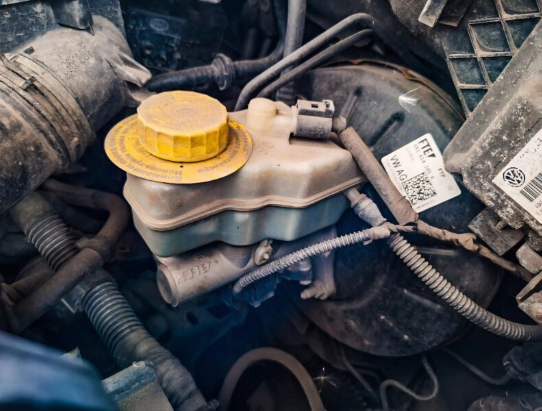
Conclusion: Stay Prepared and Stay Safe
Brake failure is one of the most terrifying scenarios a driver can face, but knowing how to react can save your life. By staying calm, using engine braking, the emergency brake, and strategic maneuvering, you can bring your car to a safe stop.
Even better? Preventing brake failure in the first place by keeping up with regular maintenance and paying attention to warning signs.
Your brakes are the most important safety feature in your vehicle—treat them with care, and they’ll protect you when you need them most.